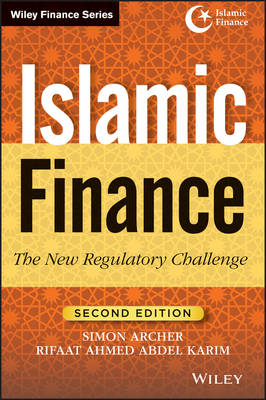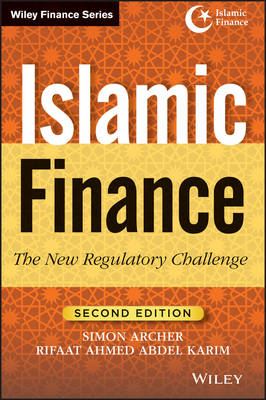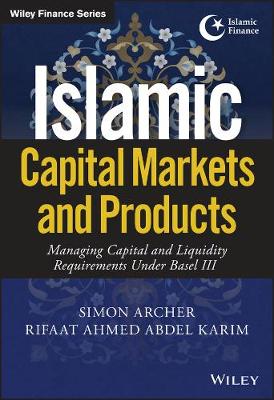Wiley Finance
1 primary work • 3 total works
Book 717
-Professor William Blair QC, Grays Inn, London "There is now great interest, both in financial and legal circles, in reliable and authoritative texts on Islamic finance. I have no doubt that the availability of Islamic Finance: The Regulatory Challenge will be warmly welcomed by those who provide financial and legal services. The work will be of great assistance to them." -The Rt Hon the Lord Woolf of Barnes, Law Lord and former Lord Chief Justice of England & Wales
* Addresses the need for banks to develop common Islamic-based international accounting and auditing standards * Clearly explains the key differences between Shari'ah rulings, standardization of acceptable banking practices, and the development of standardized financial products * Explores the role of the Shari'ah Boards in establishing common rules regarding the permissibility of financial instruments and markets * Offers guidance for regulators seeking to adapt their regulatory frameworks to the needs of the fast-growing Islamic finance sector
Islamic Capital Markets and Products
by Simon Archer and Rifaat Ahmed Abdel Karim
Islamic Capital Markets and Products provides a thorough examination of Islamic capital markets (ICM), with particular attention to the products that they offer and the legal and regulatory infrastructure within which they operate. Since Islamic banks act as asset managers, attention is paid to the regulatory challenges which they face in the light of Basel III, as regards both eligible capital and liquidity risk management. The authors of the chapters are professionals and practitioners, and write from experience. The editors also contributed to some of the chapters.
The markets and products covered include Islamic equities, Islamic investment certificates (Sukūk) which are Shari'ah compliant alternatives to conventional bonds, and Islamic Collective Investment Schemes. The coverage of legal and regulatory issues includes an examination of the implications for ICM of securities laws and regulations and of Basel III, as well as collateralisation issues. Shari'ah compliance aspects, in terms both of the selection criteria for Islamic equities and of the 'purification' of impermissible components of income, are also examined in some detail, as are the implications of Basel III for eligible capital in general and for Shari'ah compliant capital instruments in particular. A similar analysis is also made of the implications of the Basel III requirements for liquidity risk management and high quality liquid assets (HQLA), including Shari'ah compliant HQLA.
The book concludes with three case studies, two describing the ICM in Malaysia and Bahrain and a third which describes Sukūk issued as Shari'ah compliant capital instruments, followed by brief concluding remarks by the editors.


